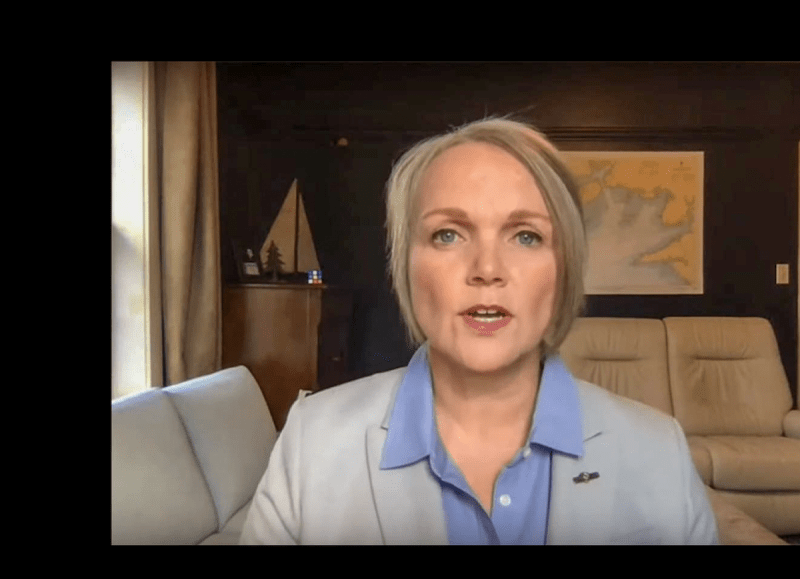‘Help our farmers grow food to feed all Canadians’
Canadian Federation of Agriculture warns nation’s domestic food supply is being threatened by the COVID-19 pandemic
By SeaWestNews
Canada’s 200,000 farming families cannot ensure the nation’s domestic food supply will remain secure for the immediate and long-term benefit of all Canadians, warns the Canadian Federation of Agriculture (CFA).
Saying much more needs to be done to counter the extraordinary challenges being faced by farmers due to the COVID-19 pandemic, Mary Robinson, President of the CFA, is urging Canadians to contact their local MPs and tell them how much they value the country’s food supply system.
“Tell your elected representatives that Canadian farmers need support and backing now. We need to know government, as it has done for other industries, is there for our farmers, so that we can continue to do what we do best – grow food to feed all Canadians,” she said in a statement following a virtual press conference.
“As farmers, we have carefully considered this message today. We do not want to create panic. At the same time, it would be irresponsible not to sound the alarm about the realities Canadian farmers are facing.
“In times of economic crisis and global uncertainty, Canadians have always been able to depend on farmers to do what we do best – grow food. Today, Canadian farmers need immediate, meaningful help from our federal government to continue fulfilling that responsibility. Agriculture, the foundation of our overall food supply is, at this very moment in time, at a tipping point. If we do not, as a nation, address the rising challenges immediately, Canadian consumers could see a decrease in the amount and variety of food at their local grocery stores as well as higher prices, in the months ahead.”
On behalf of the CFA’s 200,000 farming families, Robinson acknowledged government support to date, including the recently announced fund to help offset the significant costs of isolating temporary foreign workers when they arrive in Canada, but she said much more needs to be done.
“Unfortunately, this spring many Canadian farmers do not have enough workers to consider planting a 2020 crop. Labour was already a critical issue before the pandemic and has now escalated to the point that both farmers and food processors are worried that even if planting does proceed, harvesting and processing may not be possible without sufficient labour. We face the possibility that crops will rot in the fields, as is now happening in other countries,” said Robinson.
Canadian farmers are also dealing with significantly increased costs associated with purchasing the necessary Personal Protective Equipment (PPE) for their workers.
In addition, due to meat processing plant closures, farmers are being forced to keep and feed their livestock for an extended period of time, said Robinson.
“Canadian farmers are feeling increasingly stressed, with some farmers so worried about the mounting challenges, they are strongly considering stopping their farming operations to stave off financial disaster.”
The CFA and its members are asking Ottawa t to create an Emergency Fund or financial backstop so farmers in need can access funds to help them overcome these mounting costs. Canadian farmers need to hear a clear commitment from government to instill necessary confidence for the 2020 planting season.
Sea farmers are also facing similar challenges said Tim Kennedy, executive director of the Canadian Aquaculture Industry Alliance (CAIA), which is a member of the Canadian Federation of Agriculture.
“The seafood sector has experienced significant reductions, with shellfish demand having almost completely collapsed in North America,” said Kennedy.
“As members of the CFA, we support their calls for special attention to be given to the farm sector, to ensure Canadians access a diverse supply of fresh, local, nutritious food in the coming months, and to ensure a resilient farming and food supply sector in Canada.”
Farmed food and seafood production has been declared “Essential Services and Functions in Canada During the COVID-19 Pandemic”
“Our front-line workers continue to produce healthy, sustainable, high quality local seafood products to grocery stores across Canada. Aquaculture companies have been taking all reasonable measures including introducing strict business critical travel policies and new operating procedures to protect valued employees and the communities where they operate” said Kennedy.
(Image shows Mary Robinson, President of the CFA, during her virtual press conference)

